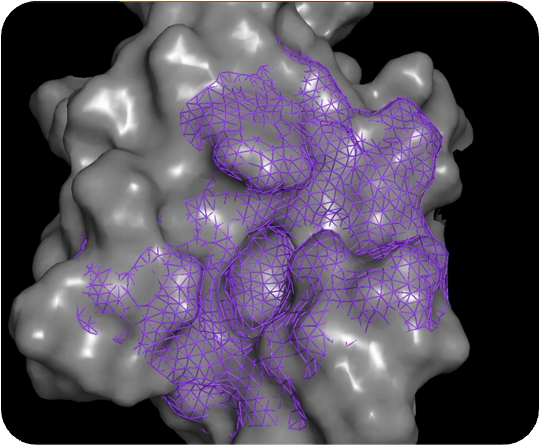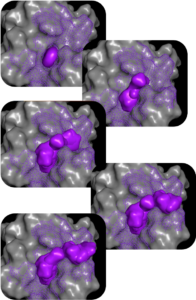This privacy statement was last changed on February 8, 2023, last checked on February 8, 2023, and applies to citizens and legal permanent residents of the United States.
In this privacy statement, we explain what we do with the data we obtain about you via https://deepcure.ai. We recommend you carefully read this statement. In our processing we comply with the requirements of privacy legislation. That means, among other things, that:
- we clearly state the purposes for which we process personal data. We do this by means of this privacy statement;
- we aim to limit our collection of personal data to only the personal data required for legitimate purposes;
- we first request your explicit consent to process your personal data in cases requiring your consent;
- we take appropriate security measures to protect your personal data and also require this from parties that process personal data on our behalf;
- we respect your right to access your personal data or have it corrected or deleted, at your request.
1. Purpose and categories of data
We may collect or receive personal information for a number of purposes connected with our business operations which may include the following: (click to expand)1.1 Compiling and analyzing statistics for website improvement.
1.1 Compiling and analyzing statistics for website improvement.
The following categories of data are collected
- IP address
- Geolocation data
2. Disclosure practices
We disclose personal information if we are required by law or by a court order, in response to a law enforcement agency, to the extent permitted under other provisions of law, to provide information, or for an investigation on a matter related to public safety.
3. How we respond to Do Not Track signals & Global Privacy Control
Our website responds to and supports the Do Not Track (DNT) header request field. If you turn DNT on in your browser, those preferences are communicated to us in the HTTP request header, and we will not track your browsing behavior.
4. Cookies
Our website uses cookies. For more information about cookies, please refer to our Cookie Policy on our Cookie Policy (US) webpage. We have concluded a data processing agreement with Google.Google may not use the data for any other Google services.5. Security
We are committed to the security of personal data. We take appropriate security measures to limit abuse of and unauthorized access to personal data. This ensures that only the necessary persons have access to your data, that access to the data is protected, and that our security measures are regularly reviewed.6. Third party websites
This privacy statement does not apply to third party websites connected by links on our website. We cannot guarantee that these third parties handle your personal data in a reliable or secure manner. We recommend you read the privacy statements of these websites prior to making use of these websites.7. Amendments to this privacy statement
We reserve the right to make amendments to this privacy statement. It is recommended that you consult this privacy statement regularly in order to be aware of any changes. In addition, we will actively inform you wherever possible.8. Accessing and modifying your data
If you have any questions or want to know which personal data we have about you, please contact us. Please make sure to always clearly state who you are, so that we can be certain that we do not modify or delete any data of the wrong person. We shall provide the requested information only upon receipt of a verifiable consumer request. You can contact us by using the information below. You have the following rights:
8.1 Right to know what personal information is being collected about you
- A consumer shall have the right to request that a business that collects personal information about the consumer disclose to the consumer the following:
- The categories of personal information it has collected about that consumer.
- The categories of sources from which the personal information is collected.
- The business or commercial purpose for collecting or selling personal information.
- The categories of third parties with whom the business shares personal information.
- The specific pieces of personal information it has collected about that consumer.
8.2 The right to know whether personal information is sold or disclosed and to whom
- A consumer shall have the right to request that a business that sells the consumer’s personal information, or that discloses it for a business purpose, disclose to that consumer:
- The categories of personal information that the business collected about the consumer.
- The categories of personal information that the business sold about the consumer and the categories of third parties to whom the personal information was sold, by category or categories of personal information for each third party to whom the personal information was sold.
- The categories of personal information that the business disclosed about the consumer for a business purpose.
8.3 The Right to equal service and price, even if you exercise your privacy rights
We shall not discriminate against a consumer because the consumer exercised any of the consumer’s privacy rights, including, but not limited to, by:- Denying goods or services to the consumer.
- Charging different prices or rates for goods or services, including through the use of discounts or other benefits or imposing penalties.
- Providing a different level or quality of goods or services to the consumer, if the consumer exercises the consumer’s privacy rights.
- Suggesting that the consumer will receive a different price or rate for goods or services or a different level or quality of goods or services. However, nothing prohibits us from charging a consumer a different price or rate, or from providing a different level or quality of goods or services to the consumer, if that difference is reasonably related to the value provided to the consumer by the consumer’s data.
8.4 The right to delete any personal information
- A consumer shall have the right to request that a business delete any personal information about the consumer which the business has collected from the consumer.
- A business that receives a verifiable request from a consumer to delete the consumer’s personal information pursuant to subdivision (a) of this section shall delete the consumer’s personal information from its records and direct any service providers to delete the consumer’s personal information from their records.
- A business or a service provider shall not be required to comply with a consumer’s request to delete the consumer’s personal information if it is necessary for the business or service provider to maintain the consumer’s personal information in order to:
- Complete the transaction for which the personal information was collected, provide a good or service requested by the consumer, or reasonably anticipated within the context of a business’s ongoing business relationship with the consumer, or otherwise perform a contract between the business and the consumer.
- Detect security incidents, protect against malicious, deceptive, fraudulent, or illegal activity; or prosecute those responsible for that activity.
- Debug to identify and repair errors that impair existing intended functionality.
- (Exercise free speech, ensure the right of another consumer to exercise his or her right of free speech, or exercise another right provided for by law.
- Comply with the California Electronic Communications Privacy Act pursuant to Chapter 3.6 (commencing with Section 1546) of Title 12 of Part 2 of the Penal Code.
- Engage in public or peer-reviewed scientific, historical, or statistical research in the public interest that adheres to all other applicable ethics and privacy laws, when the businesses’ deletion of the information is likely to render impossible or seriously impair the achievement of such research, if the consumer has provided informed consent.
- To enable solely internal uses that are reasonably aligned with the expectations of the consumer based on the consumer’s relationship with the business.
- Comply with a legal obligation.
- Otherwise use the consumer’s personal information, internally, in a lawful manner that is compatible with the context in which the consumer provided the information.
9. Selling and disclosure of personal data to third parties
We have not sold consumers’ personal data in the preceding 12 months.
We have not disclosed consumers’ personal information for a business purpose in the preceding 12 months.
10. Children
Our website is not designed to attract children and it is not our intent to collect personal data from children under the age of consent in their country of residence. We therefore request that children under the age of consent do not submit any personal data to us.
11. Contact details
DeepCure
100 City Hall Plaza, Boston, MA 02108
United States
Website: https://deepcure.ai
Email: info@deepcure.ai
Phone number: 8572091916



